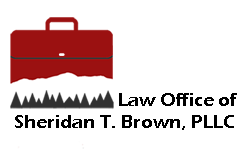Loon Protection Vote Well Informed
In his June 17 Portsmouth Herald column, Wayne Hooper described legislation to protect New Hampshire loons (a state-listed threatened species) from toxic lead (Pb) fishing tackle as “shortsighted” and “uninformed.” Nothing could be further from reality.
Senate Bill 89 bans the sale and freshwater use of lead fishing sinkers and jigs (hooks with a lead weight molded around them) weighing one ounce or less — by far the largest known cause of New Hampshire adult loon mortality. Decades of data gathered by the Loon Preservation Committee (LPC) show that nearly half (49 percent) of all documented New Hampshire adult loon deaths are caused by this tackle.
When one considers the loon’s life history characteristics, the importance of protecting adult loons is clear. Loons are slow to breed and often require many years to produce chicks. For these reasons, survival of adult loons is the most important factor in ensuring the continued viability of New Hampshire’s small loon population. The loss of adult loons to lead sinkers and jigs — at least 124 between 1989 and 2011 — has had a significant negative impact upon our state’s loons.
Although current law bans the sale and freshwater use of lead sinkers weighing one ounce or less, it only bans lead jigs measuring one inch or less in length. This falls far short of protecting our loons —52 percent of the lead objects removed from dead New Hampshire loons have been larger, currently legal, sizes of jigs. SB 89 closes the gap in existing law by implementing the same weight standard for prohibited lead jigs and lead sinkers — this will make the law clear, consistent and adequate to protect our loons.
The required switch to non-lead jigs will have a minimal impact upon the average angler, as a wide variety of alternatives to lead fishing tackle exist and are comparable to lead tackle in cost. Still, some elite bass anglers — the kind well-equipped with bass boats and several boxes of tackle — oppose SB 89. For them, the cost of switching to lead alternatives is proportionate to the multitude of tackle they own. So, like lead tackle manufacturers (who enjoy a better profit margin on loon-poisoning lead), these individuals argue for the status quo.
Currently, the environmental costs of lead fishing tackle are unfairly borne by parties other than those who make and use lead fishing tackle. It is only because of intensive management — supported by volunteer contributions — that our state’s loon population has been prevented from decline. Much of this work continues to be offset by loon deaths from lead fishing sinkers and jigs. Just 38 pieces of lead tackle erased six seasons of volunteers’ work building and floating artificial nesting rafts to increase loons’ reproductive success.
Ironically, Hooper praises the work of the late Herb Cilley yet opposes SB 89 — a bill that ensures efforts like Cilley’s are not wasted. Cilley was a longtime LPC volunteer and board member who personally floated numerous nesting rafts on Bow Lake in Strafford and helped to bring many loon chicks into the world. Given the extent of the data documenting continued loon mortality from currently legal lead jigs, Cilley would undoubtedly support SB 89.
Opponents’ suggestion that SB 89 will result in a loss of fishing-related revenue has no basis in fact. Massachusetts took similar action last year and it saw an increase in fishing license sales. Meanwhile, SB 89 includes a three-year phase-in period.
Moreover, it is important to recognize that wildlife is an important part of the Granite State’s natural “brand” that attracts residents and visitors. In addition to loons, SB 89 benefits other species of wildlife. Wildlife watchers spend $280 million annually on activities and support nearly 4,500 jobs in New Hampshire.
Protecting wildlife is anything but shortsighted. Legislators made a well-informed decision to pass SB 89 based on all of the facts — including those discussed above (but omitted by Mr. Hooper and other SB 89 opponents). More information is available at www.loon.org.
Sheridan Brown is a lawyer from Grantham and the legislative coordinator for the Loon Preservation Committee. He can be reached at advocate@stbrownlaw.com.
